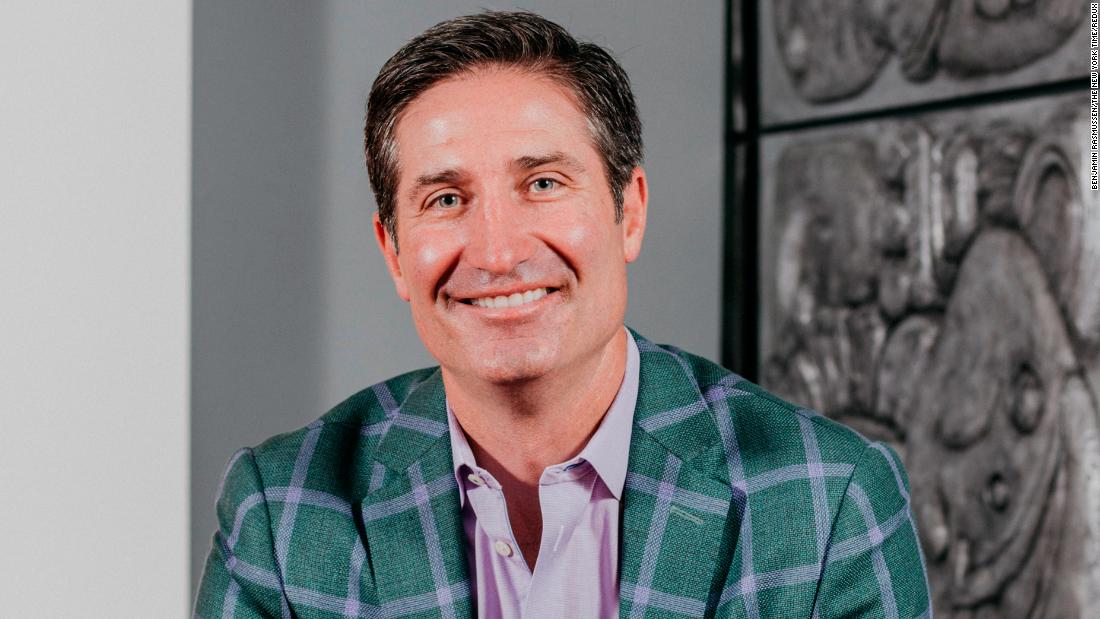Brian Niccol’s Leadership at Starbucks

Brian Niccol, the current CEO of Starbucks, has been at the helm of the coffee giant since 2019. He brought with him a wealth of experience from his previous role as CEO of Taco Bell, where he spearheaded a successful turnaround of the fast-food chain. Niccol’s leadership at Starbucks has been marked by a focus on innovation, digital transformation, and a renewed emphasis on customer experience.
Niccol’s Background and Experience
Prior to joining Starbucks, Niccol held leadership positions at several prominent companies, demonstrating his expertise in various aspects of the food and beverage industry. He began his career at PepsiCo, working his way up to Vice President of Marketing for Frito-Lay. In 2008, he joined Yum! Brands as President of Taco Bell, where he implemented a number of successful initiatives, including the introduction of the “Dollar Menu” and the expansion of the company’s mobile ordering platform.
Challenges Faced by Niccol
Upon becoming CEO of Starbucks, Niccol faced a number of significant challenges, including:
- Increased competition: The coffee industry is increasingly competitive, with new players entering the market and established players expanding their offerings.
- Changing consumer preferences: Consumers are becoming more discerning about their coffee choices, demanding higher quality, more sustainable, and more ethical options.
- The rise of digital ordering and delivery: Consumers are increasingly turning to digital platforms for their coffee needs, presenting a challenge for traditional brick-and-mortar coffee shops.
- Labor shortages: The coffee industry, like many others, has been impacted by labor shortages, leading to staffing challenges and increased operating costs.
Initiatives and Strategies Implemented by Niccol
Niccol has implemented a number of initiatives and strategies to address these challenges and position Starbucks for continued success. These include:
- Investing in digital innovation: Starbucks has made significant investments in its digital platform, including its mobile ordering app and its loyalty program. The company has also introduced new technologies, such as its “Order Ahead” feature, which allows customers to pre-order and pay for their drinks online.
- Expanding its food offerings: Starbucks has expanded its food menu to include a wider variety of healthy and convenient options, catering to the changing tastes of its customers.
- Focusing on sustainability: Starbucks has made a commitment to sustainability, including sourcing ethically grown coffee beans and reducing its environmental footprint.
- Investing in its employees: Starbucks has increased its minimum wage and introduced new benefits for its employees, in an effort to attract and retain top talent.
Niccol’s Navigation of the Changing Coffee Industry
Niccol has navigated the changing landscape of the coffee industry by embracing innovation and adapting to the evolving needs of consumers. He has recognized the importance of digital technology, sustainability, and employee well-being, and has implemented strategies to address these key areas. For example, Starbucks’ mobile ordering app has become a major driver of revenue, allowing customers to skip the line and order their drinks in advance. The company’s commitment to sustainability has also been praised by consumers and investors, demonstrating that it is possible to be profitable while also doing good.
Brian Niccol’s Vision for Starbucks’ Future: Starbucks Ceo Brian Niccol
Brian Niccol, the current CEO of Starbucks, has a clear vision for the future of the company, one that focuses on innovation, customer experience, and sustainable growth. His vision is grounded in the belief that Starbucks can continue to be a global leader in the coffee industry by embracing emerging trends and adapting to the changing consumer landscape.
Growth Strategy and Market Expansion
Niccol’s vision for Starbucks’ growth is based on a multi-pronged approach that involves expanding into new markets, diversifying product offerings, and enhancing the customer experience. Starbucks has been actively expanding its global footprint, particularly in emerging markets like China and India. The company is also focusing on growing its digital presence and leveraging technology to enhance customer engagement.
Key Trends Shaping the Coffee Industry, Starbucks ceo brian niccol
Niccol believes that several key trends will shape the coffee industry in the coming years. These include:
- The growing demand for premium coffee experiences: Consumers are increasingly seeking high-quality, ethically sourced coffee and unique brewing methods.
- The rise of personalized coffee experiences: Consumers want coffee that is tailored to their individual preferences, whether it’s through customization options or personalized recommendations.
- The increasing importance of sustainability: Consumers are demanding that businesses operate in a socially responsible and environmentally sustainable manner.
- The growing popularity of plant-based options: The demand for plant-based alternatives to traditional dairy products is increasing, creating opportunities for Starbucks to expand its menu.
Impact of Niccol’s Leadership on Sustainability and Social Responsibility
Niccol’s leadership has been instrumental in advancing Starbucks’ sustainability and social responsibility initiatives. Under his leadership, the company has set ambitious goals for reducing its environmental impact, promoting ethical sourcing practices, and supporting communities around the world.
“We are committed to creating a more sustainable future for our planet and our people,”
– Brian Niccol
Summary of Niccol’s Vision for Starbucks’ Future
| Key Aspect | Description |
|---|---|
| Growth Strategy | Expanding into new markets, diversifying product offerings, and enhancing the customer experience. |
| Market Expansion | Focus on emerging markets like China and India, leveraging technology for customer engagement. |
| Key Trends | Demand for premium coffee experiences, personalized coffee, sustainability, plant-based options. |
| Sustainability and Social Responsibility | Ambitious goals for reducing environmental impact, ethical sourcing, community support. |